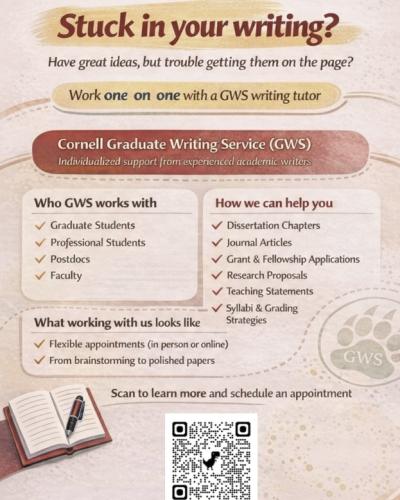The KNIGHTLYnews is an online forum where FWS instructors and other teachers of writing can swap and share ideas for best classroom practice. Weekly posts are designed to help teachers develop lesson plans and writing assignments, and respond to classroom challenges by introducing new teaching tools and sharing emerging pedagogical ideas. Posts also direct readers to program and campus resources that support teaching and learning, and provide opportunities for peer collaboration and mentorship. #teachlikeabear
Last year for the first time in my twenty-plus years of teaching academic writing, I explicitly instructed students on how, rather than when, to communicate with me on my First Year Writing syllabus. This new paragraph read like both a request and a requirement. It was born because of problems during the spring 2023 semester. That semester, students suddenly and frequently ghosted my emails. At the time, I thought we had moved into recovery from the post- COVID slump. The collective campus energy as well as the vibe in my classes seemed proactive and progressive. What was going on? Still confused when spring break arrived, I asked the class why they didn’t respond to my emails. I learned the following:
- Students don’t email.
- @cornell.edu was for many of my students, their first and only time using an email address.
“First” and “only” time using an email address! Was I that outmoded? That was more of a shocker than the fact that kids these days would rather text than email. Students told me that they yes they had email addresses, but they never used them. Years ago, I had made it a point each semester to spend a day or two teaching, discussing, and having students practice writing emails to professors, for internships, and for general academic inquiries. I called the class, Email for Academic Purposes. Over time, I had evolved my hardcopy handout for the class onto Canvas and students practiced emailing me. But I cut that class entirely during COVID. We were all Zooming, after all, and I dismissed the significance of it until a year ago, that spring semester of being email ghosted. I needed to address it.
Here is what I now include on my syllabus:
Outside of our class meetings, conferences, and office hours, our primary form of communication will be via our Cornell email accounts. Please check your Cornell email daily (twice daily?) Monday through Friday. Be sure to acknowledge or respond to my emails when appropriate. Communication is extra important around holidays, poor weather conditions, and individual appointments when schedules are most likely to change. Note that while I usually respond to your emails promptly, I keep evenings and weekends free from work communication. *You might also consider establishing your own healthy communicative boundaries this semester.
Note my emphasis of Cornell. Some students struggled with this specification in the past, so I tried to be very clear. Overall, my syllabus addendum was a success. I emailed students, and they emailed me. The ghosting stopped. I didn’t get the message completely right, however. Often, student responses were too informal or blunt or hard to understand. Today, I bring back Email for Academic Purposes.
This is all to say that as we prepare our courses for another semester, it might help us to add some communication preferences to our syllabi to make our work and our students’ work run more smoothly. It’s best not to make assumptions about communication. That would in fact, not be good communication.
*For more on ghosting in academia, check out these past Chronical of Higher Education articles:
- Meet the Cybersecurity Threat Haunting Community Colleges: ‘Ghost Students’ by Emma Hall (September 1, 2023)
- The Sad Humiliations of Academic Ghosting by Alicia Andrzejewski (January 30, 2023)
- Ghost Advising by Katrin Schultheiss (March 4, 2018)
- Ghost Students: Here, Then Gone by Casey Wiley (February 6, 2011)




